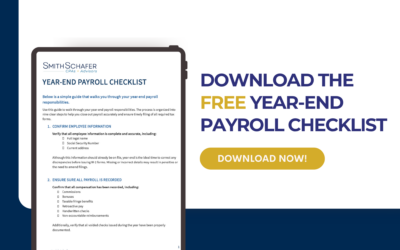It is already starting to feel like summerin many parts of the country. But the forecast for Washington remains unclear as officials continue to discuss various tax-related issues. No matter what happens in Washington, do not get stuck in a holding pattern yourself. Give some attention to business and personal tax planning this summer.
Here are 10 ideas that combine tax planning with summertime fun.
- Entertain top business clients. You may be eligible to write off 50% of the cost of business meals and entertainment if you entertain clients before or after a substantial business discussion. For instance, after you hammer out a business deal, you might treat a client to a round of golf and then dinner and drinks. The 50% limit applies to all the qualified expenses, including the amounts you pay for the client, yourself and your significant others.
- Throw a company picnic. You can generally deduct the cost of a picnic, barbecue or similar get-together. Not only will such an event provide your workers an opportunity to relax and socialize, but the 50% limit on meals and entertainment expense deductions also won’t apply. There is one caveat: The benefit must be primarily for your employees, who are not “highly compensated” under tax law. Otherwise, expenses are deductible under the regular business entertainment rules.
- Donate household items to charity. Are you planning to clean out the garage, attic or basement this summer? If so, you will probably find household goods — such as clothing and furniture — that you do not want or need anymore. Consider donating these items to charity. Assuming they are still in good condition, you may take a charitable deduction on your 2017 personal tax return based on the current fair market value of any donated items. Use an online guide or consult your tax professional for valuations.
- Send the kids to day camp. Parents who need to work may decide to send young children to summer day camp while school is out. Assuming certain requirements are met, the cost may qualify for a dependent care credit. Generally, the maximum credit is $600 for one child and $1,200 for two or more kids. Note that specialty day camps for athletics or the arts qualify for this break, but overnight camp does not qualify. Remember, tax credits lower your tax liability dollar for dollar, unlike deductions, which lower the amount of income that is taxed.
- Buy an RV or boat. If you take out a loan to purchase a recreational vehicle (RV) or boat for personal use this summer, the vehicle or vessel may qualify as a second home for federal income tax purposes. In other words, you may be eligible to write off the interest on the loan as mortgage interest on your personal tax return. The IRS says any dwelling place qualifies as a second home if it has sleeping space, a kitchen and toilet facilities. Therefore, the interest paid to buy an RV or boat that meets these requirements is tax-deductible under the mortgage interest rules. This deduction is available for interest paid on a combined total of up to $1 million of mortgage debt used to acquire, build or improve a principal residence and a second residence. Interest on additional home equity debt of up to $100,000 may also be deductible.
- Minimize vacation home use. Federal tax law allows you to deduct expenses related to renting out a vacation home to offset the rental income you receive. With summer already underway, you have probably worked out a rental schedule for your vacation home, but remember that you cannot deduct a loss if your personal use of the home exceeds the greater of 14 days or 10% of the time the home is rented out. If you expect to experience a loss, watch your personal use to ensure you remain below the 14-day or 10% limit. Other rules, however, might still limit your loss deduction.
- Rent out your primary residence. Do you live in an area where a summertime event — such as a major golf tournament, arts festival or marathon — will be held? If you rent out your home for no more than two weeks during the year, you do not have to comply with the usual tax rules. In other words, you do not have to report the rental income — it is completely tax-free — but you cannot deduct rental-based expenses either.
- Take advantage of business travel. Suppose you are required to go on a business trip this summer. You can write off much of your travel expenses as long as the trip’s primary purpose is business-related — even if you indulge in some vacationing. For instance, if you spend the business week in meetings and the weekend sightseeing, the entire cost of your airfare plus business-related meals, lodging and local transportation is deductible within the usual tax law limits. Just do not deduct any personal expenses you incur.
- Support a recent graduate. If your child just graduated from college, this is probably the last year you can claim a dependency exemption for him or her. However, you must provide more than half of the child’s annual support to qualify for the $4,050 exemption. To clear the half-support threshold, consider giving the graduate a generous graduation gift, such as a car to be used on the first job. Doing so will provide your child with a practical gift, as well as possibly helping you clear the support threshold required to claim a dependency exemption. Unfortunately, dependency exemptions may be reduced for high-income taxpayers. Consult a tax professional about this tax issue before purchasing a major graduation gift. It could impact the amount you are willing to spend.
- “Go fishing” for deductions. The IRS won’t allow you to claim deductions for an “entertainment facility,” such as a boat or hunting lodge. But you can still write off qualified out-of-pocket entertainment expenses, subject to the 50% limit. For example, if you take a client out on your boat, no depreciation deduction is allowed — but you may be eligible to write off the 50% of the costs of boat fuel, food and drinks, and even the fish bait, if you qualify under the usual business entertainment rules.
More Tips Available
These tips show that tax planning does not have to be tedious. Whether you decide to ship the kids off to day camp or take the plunge of buying a boat, summer tax planning can actually be fun — and your Smith Schafer professional may have other creative ideas. With the proper planning, you can bask in the sun and tax-saving opportunities all summer long. Click here to schedule a FREE 30 minute consultation with one of our tax professionals. We look forward to speaking with you soon.



